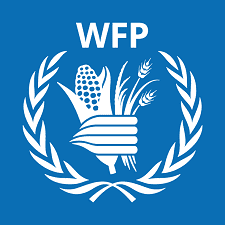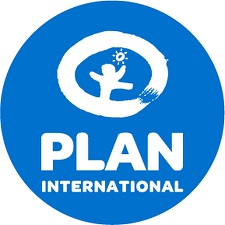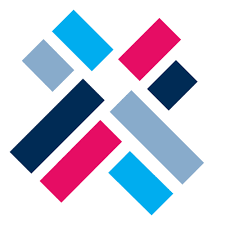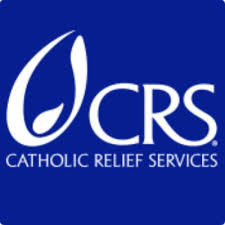🇸🇱 Job Vacancies @ UNICEF (United Nations Children’s Fund) – 2 Positions
 UNICEF (United Nations Children's Fund is recruiting to fill the following positions:
UNICEF (United Nations Children's Fund is recruiting to fill the following positions:
1.) Consultancy (Technical Advisor)
2.) Consultant (Infrastructure Research)
See job details and how to apply below.
1.) Consultancy (Technical Advisor)
Consultancy (Technical Advisor), Freetown - Sierra Leone, Education Outcomes Fund (EOF), Hosted Fund, 12 months, Req: 561714
Job no: 561714
Position type: Consultant
Location: Sierra Leone Division/Equivalent: UNITED HOSTED FUNDS
School/Unit: Education Outcomes Fund
Department/Office: O/P Freetown, Sierra Leone
Categories: Education, Social Policy, Communication, Early Childhood Development, Social and Behavior Change
UNICEF works in some of the world’s toughest places, to reach the world’s most disadvantaged children. To save their lives. To defend their rights. To help them fulfill their potential.
Across 190 countries and territories, we work for every child, everywhere, every day, to build a better world for everyone.
And we never give up.
For every child, EDUCATION
How can you make a difference?
About The Education Outcomes Fund (EOF)
There are few greater challenges faced by the global community than the twin crises of learning poverty and youth unemployment. In response, the Education Commission (chaired by Gordon Brown, former UK Prime Minister and UN Special Envoy for Global Education) and the Global Steering Group for Impact Investment (chaired by Sir Ronald Cohen) came together to create EOF. We aim to improve the education and employment outcomes of 10 million children and youth by supporting governments to utilize a range of innovative finance instruments at scale, including outcomes funds and other results-based financing (RBF) instruments.
(adsbygoogle = window.adsbygoogle || []).push({});
EOF is backed by a range of world leaders who support this objective, as well as leaders in education and impact investing.
EOF supports improvements in the quality of education and skills programs, with a special focus on underserved populations, including the hardest to reach; rural populations, girls, children with disabilities, and refugees. It measures (and pays for) what matters – both core skills like literacy and numeracy, but also critical 21st Century skills such as socio-emotional skills, ICT skills, and other broader fundamentals of a quality education. It helps close the persistent gap between the skills needed by employers and those attained by today’s youth by paying for employment and retention outcomes.
Partnership with the Government of Sierra Leone
Delivering quality education is a top government priority and a global priority (Sustainable Development Goal 4), and to that end, the Government of Sierra Leone intends to use an outcomes fund approach. This outcomes fund will enable the government to deepen an evidence-based understanding of ‘what works’ in the local context, develop and improve existing interventions, and transfer much of the delivery risk to the non-state sector. Providers that are selected as part of this outcomes fund will be expected to work with - not replace - existing school management structures.
The outcomes fund - Sierra Leone Education Innovation Challenge (SLEIC) – has been established as a partnership between the Government, donors, education providers, and philanthropies/social investors. The main objectives of the program are to:
- Improve learning outcomes (literacy and numeracy) and achievement of thresholds of minimum competencies in a representative sample of primary schools, aligned with the Ministry’s agenda, during and outside COVID-19.
- Inform which interventions and financing approaches are most effective to improve learning outcomes in education during and outside COVID-19.
- Build sustainable capacity in schools to deliver equitable learning outcomes during and outside COVID-19.
- Build provider capacity.
- Increase outcomes-orientation in policy-making.
The key participants and their roles are as follows: SLEIC will serve children in 325 primary schools that will be spread across 5 contractual lots, each with its own service provider and unique intervention. The total funding for the programme is $18.389M USD. The programme started on 5th September 2022 and will run until August 2025. Year 1 of the programme will be funded on an input basis. This means that providers/social investors will be paid on the basis of activities completed according to their workplan, and budget spent. Years 2 and 3 will see a shift to outcomes-based funding, with payment based on provider/social investor performance against two outcome metrics: i) learning gains of students in Grantee schools (years 2 and 3), and ii) the increase in the number of children meeting minimum competencies in literacy / numeracy (year 3 only).
Since its early design stages, the SLEIC programme has been co-designed by EOF and the Government of Sierra Leone, represented by the Ministry of Basic and Secondary Senior Education (MBSSE) and the Directorate of Science, Technology, and Innovation (DSTI). This co-design feature has been key to successfully designing the programme, making it relevant to the Sierra Leonean context and contributing to the government's goals for the education sector.
PURPOSE OF THE ASSIGNMENT
The Consultant (Technical Advisor) will support EOF by providing expert and strategic guidance for both the SLEIC programme that is being implemented and the development of a new programme in ECE.
For SLEIC, the assignment will focus on maintaining and building strong relationships with key stakeholders in the country, contribute to overcoming any challenges that may arise and provide advice for a smoother implementation. The Consultant (Technical Advice) will work closely with EOF´s Central and Sierra Leone Team to provide strategic guidance during implementation and thus contribute to the success of the programme.
For the ECE programme, the assignment will include providing technical guidance based on sector best practices, the context needs and government priorities. Additionally, to support the fundraising efforts of the programme.
The broad objectives of this consultancy are:
- To aid EOF´s Central and Sierra Leone teams in building successful relationships at the local level with key actors during programme implementation.
- To provide strategic advice to overcome any challenges that may arise during programme implementation and how to approach such specifically with the government of Sierra Leone.
- To contribute to the work of EOF in Sierra Leone by providing expert local knowledge and guidance during overall programme implementation.
- To provide technical advice to EOF’s central team on the design of an ECE programme in Sierra Leone.
- To support fundraising efforts for the ECE programme in Sierra Leone.
The Technical Advisor is expected to deliver the following:
- A stakeholder mapping and strategy on how to best involve the different stakeholders on the ground.
- Support the team in maintaining and building relationships with key stakeholders on the ground.
- Feedback and suggested solutions from a local perspective to problems that need to be overcome during programme implementation, especially on how to involve and approach the government of Sierra Leone.
- Facilitate and accompany the MBSSE and the Ministry of Finance (MOF) to ensure they have taken the necessary steps to fulfil their financial commitment to the programme next year.
- Facilitate discussions in the government to ensure the sustainability of the SLEIC programme.
- Feedback on the design of an ECE Outcomes Fund in Sierra Leone.
- Feedback and involvement in the fundraising efforts for an ECE Outcomes Fund in Sierra Leone.
DESCRIPTION OF ASSIGNMENT (SMART DELIVERABLES, DEADLINES):
Deliverables
Description
Estimated number of working days
Deadline / timeline
Deliverable 1:
A stakeholder mapping strategy for the SLEIC program, of at least 5 pages, which summarizes the key program stakeholders in Sierra Leone.
Develop a strategy on who, when and how to involve different strategic government partners for the programme, and how best to build strong working relationships with them.
10 days
By the end of June 2023
Deliverable 2:
Monthly meetings of at least 1 hour with 2 key program stakeholders, and a minimum 2-page contact report produced to summarize each meeting.
Support the Sierra Leone team to implement the stakeholder mapping strategy and build relationships with key stakeholders in the Government of Sierra Leone. This is in the form of preparing meetings with the team and joining some key meetings.
4 days per month
48 days across the 12 month contract
Monthly
Deliverable 3: A post-meeting report produced after each monthly meeting with the SLEIC program grantees, of at least 2 pages, summarizing meeting contents and next steps
Advice and recommendations on problem solving for issues reported by service providers during the implementation
Attend monthly meetings with EOF’s central and Sierra Leone teams to discuss solutions to any problems that arise.
Document meeting attendance with EOF’s central and Sierra Leone teams including email chain outlining follow-up next steps.
2 days per month
24 days across the 12 month contract
Monthly
Deliverable 4: Monthly meetings of at least 1 hour with MBSSE and the MOF, and a minimum 2-page contact report produced to summarize meeting
Engage closely MBSSE and MOF to ensure they have taken the necessary steps to fulfill their financial commitment to the programme.
The GoSL has signed an escrow agreement that stipulates that they will contribute USD 1.5M to pay for outcomes in the SLEIC programme. For the GoSL to fulfill its commitment MBSSE and MOF need to follow some steps which include: i) MBSSE to open an escrow account, and ii) MBSSE and MOF to commit the resources in the government’s budget each year, and iii) MOF to transfer the resources to the escrow account to be used to pay for outcomes.
The consultant should engage closely MOF and MBSSE to ensure these steps take place in a timely manner.
2 days per month
24 days across the 12 month contract
Monthly
Deliverable 5: Develop a plan (minimum 5 pages) for the programme’s sustainability after the planned programme end in August 2025
The SLEIC programme was designed to maximize the sustainability of the prorgramme after it has ended. To ensure this vision materializes it will be key to support the GoSL to develop a concrete action plan on how they will use the lessons learned of the programme to scale it up and what they need from the programme to make it happen.
Developing this plan will involve organizing and facilitating workshops with the government.
18 days
By the end of July 2023
Deliverable 6:
Monthly meetings of at least 1 hour with 4 potential funders for the potential Sierra Leone ECE Outcomes Fund, and a minimum 2-page contact report produced to summarize meeting.
Provide strategic and technical direction to the design of the programme and the fundraising strategy. This should include best practices of ECE, the context needs and government priorities. This will involve supporting the preparation of key meetings with relevant stakeholders.
6 days per month
72 days across the 12 month contract
Monthly
Total estimated working days- 196 working days
To qualify as an advocate for every child you will have...
- An advanced university degree (Master’s or higher) in a relevant field is required (Education, International Development, Project Management, Social Sciences, Communications, or other relevant fields).
- A minimum of Eight years of relevant professional experience in Quality Basic Education and Early Childhood Development.
- Prior experience working with international organisations and donors in an education setting in Sierra Leone
- Direct experience of working with the Ministry of Basic and Senior Secondary Education in Sierra Leone.
- Exceptional communication and interpersonal skills.
- Developing country work experience and/or familiarity with emergency is considered an asset.
- Fluency in English is required. Knowledge of another official UN language (Arabic, Chinese, French, Russian or Spanish) or a local language is an asset.
For every Child, you demonstrate...
UNICEF's values of Care, Respect, Integrity, Trust, Accountability, and Sustainability (CRITAS).
To view our competency framework, please visit here.
UNICEF is here to serve the world’s most disadvantaged children and our global workforce must reflect the diversity of those children. The UNICEF family is committed to include everyone, irrespective of their race/ethnicity, age, disability, gender identity, sexual orientation, religion, nationality, socio-economic background, or any other personal characteristic.
UNICEF offers reasonable accommodation for consultants/individual contractors with disabilities. This may include, for example, accessible software, travel assistance for missions or personal attendants. We encourage you to disclose your disability during your application in case you need reasonable accommodation during the selection process and afterwards in your assignment.
UNICEF has a zero-tolerance policy on conduct that is incompatible with the aims and objectives of the United Nations and UNICEF, including sexual exploitation and abuse, sexual harassment, abuse of authority and discrimination. UNICEF also adheres to strict child safeguarding principles. All selected candidates will be expected to adhere to these standards and principles and will therefore undergo rigorous reference and background checks. Background checks will include the verification of academic credential(s) and employment history. Selected candidates may be required to provide additional information to conduct a background check.
Remarks:
Only shortlisted candidates will be contacted and advance to the next stage of the selection process.
Individuals engaged under a consultancy or individual contract will not be considered “staff members” under the Staff Regulations and Rules of the United Nations and UNICEF’s policies and procedures, and will not be entitled to benefits provided therein (such as leave entitlements and medical insurance coverage). Their conditions of service will be governed by their contract and the General Conditions of Contracts for the Services of Consultants and Individual Contractors. Consultants and individual contractors are responsible for determining their tax liabilities and for the payment of any taxes and/or duties, in accordance with local or other applicable laws.
The selected candidate is solely responsible to ensure that the visa (applicable) and health insurance required to perform the duties of the contract are valid for the entire period of the contract. Selected candidates are subject to confirmation of fully-vaccinated status against SARS-CoV-2 (Covid-19) with a World Health Organization (WHO)-endorsed vaccine, which must be met prior to taking up the assignment. It does not apply to consultants who will work remotely and are not expected to work on or visit UNICEF premises, programme delivery locations or directly interact with communities UNICEF works with, nor to travel to perform functions for UNICEF for the duration of their consultancy contracts.
Advertised: May 04 2023 Greenwich Standard Time Application close: May 11 2023 Greenwich Standard Time
2.) Consultant (Infrastructure Research)
Consultant (Infrastructure Research), Freetown - Sierra Leone, Education Outcomes Fund (EOF), Hosted Fund, 3 Months
Job no: 561710
Position type: Consultant
Location: Sierra Leone Division/Equivalent: UNITED HOSTED FUNDS
School/Unit: Education Outcomes Fund
Department/Office: O/P Freetown, Sierra Leone
Categories: Social Policy, Early Childhood Development
UNICEF works in some of the world’s toughest places, to reach the world’s most disadvantaged children. To save their lives. To defend their rights. To help them fulfill their potential.
Across 190 countries and territories, we work for every child, everywhere, every day, to build a better world for everyone.
And we never give up.
For every child, OPPORTUNITY
How can you make a difference?
There are few greater challenges faced by the global community than the twin crises of learning poverty and youth unemployment. In response, the Education Commission (chaired by Gordon Brown, former UK Prime Minister and UN Special Envoy for Global Education) and the Global Steering Group for Impact Investment (chaired by Sir Ronald Cohen) came together to create EOF. We aim to improve the education and employment outcomes of 10 million children and youth by supporting governments to utilize a range of innovative finance instruments at scale, including outcomes funds and other results-based financing (RBF) instruments.
EOF supports improvements in the quality of education and skills programs, with a special focus on underserved populations, including the hardest to reach, rural populations, girls, children with disabilities, and refugees. It measures (and pays for) what matters – both core skills like literacy and numeracy, but also critical 21st Century skills such as socio-emotional skills, ICT skills, and other broader fundamentals of a quality education. It helps close the persistent gap between the skills needed by employers and those attained by today’s youth by paying for employment and retention outcomes.
The Government of Sierra Leone has already partnered with EOF to develop the Sierra Leone Education Innovation Challenge (SLEIC), an outcomes fund at primary education level to deepen an evidence-based understanding of ‘what works’ in the local context, develop and improve existing interventions, and transfer much of the delivery risk to the non-state sector.
Building upon this partnership, EOF and the Ministry of Basic and Senior Secondary Education (MBSSE) are collaborating to design an Outcomes Fund in Early Childhood Education (ECE). Supporting the policy initiatives of the Government of Sierra Leone, which frame ECE as a key area of expansion, this programme aims to use an Outcomes Fund approach to support the rapid expansion of ECE provision in the country through community Early Childhood Development (ECD) centres, while maintaining and monitoring quality to support holistic child development. A key facet of this approach is the development of community ECD centres within existing infrastructure.
PURPOSE OF THE ASSIGNMENT
The Consultant (Infrastructure Research) will support EOF by providing on-the-ground data collection and broader research activities to help answer the question of the existence of available space in primary school structures and/or community infrastructure in which community ECD centres may be established by service providers.
The broad objectives of this consultancy are:
- To aid EOF in understanding the availability and presence of existing infrastructure and the level to which it requires repairs to meet safety standards.
- To connect and collaborate with stakeholders to identify the best approach for gather this information.
- To map the districts or chiefdoms in which the infrastructure is more or less likely to exist.
- To conduct some field visits to gather insights into the infrastructure and help identify potential challenges that may be encountered in implementation.
The Consultant is expected to deliver the following:
- A workplan showing the intended approach for information gathering.
- Collected data on some infrastructure in each district showing its comparison to minimum criteria.
- A report on the findings on the general availability of infrastructure in communities, and the extent to which refurbishment is required. A recommendation on the feasibility of using existing infrastructure in this programme is needed, including an assessment of risks and mitigation strategies.
DESCRIPTION OF ASSIGNMENT (DELIVERABLES):
Deliverable
Description
Estimate number of working days
Deadline/ timeline
Deliverable 1: Convene at least 2 meetings or working sessions of at least 60 minutes with stakeholders with knowledge on the sector or communities.
Lead in-country stakeholder engagement, having strategic discussions and working sessions with Government, non-state actors providing ECD services in the country, or other development partners to ensure best data collection approach is identified and validated.
Produce a 1–2-page contact report for each meeting.
5
By the end of Week 2
Deliverable 2:
Develop a workplan (at least 2 pages) outlining the work for the rest of the consultancy, (e.g., for data collection and analysis) based on initial findings from stakeholder engagement.
Develop a methodology for data collection, given the additional information gained from engaging stakeholders, taking into consideration feasibility with time constraints, and getting the fullest picture of different areas in the country.
5
By the end of Week 2
Deliverable 3:
Visit at least 40 communities / chiefdoms total, covering all districts, collecting data on the state of existing infrastructure and other criteria.
Lead work to visit communities and/or chiefdoms to engage with local stakeholders.
Through visitations and engagements, gather information on the existence of infrastructure and assess its current state, including criteria such as ownership, amount of space available, and adherence to standards, and willingness of communities to provide structure for ECE activities.
Provide checklist for each community visit with minimum criteria (to be developed with EOF central team), with written 1-2 page contact report of meetings with any officials.
20
By the end of week 6
Deliverable 4:
Draft a comprehensive report no more than 40 pages on the feasibility of using existing infrastructure in primary schools and community buildings to increase access to ECE at scale.
As a conclusion to the consultancy, write up the findings in a report, assessing the feasibility and risks of expanding ECE access at scale through existing infrastructure by non-state service providers in collaboration with communities. Include an assessment of key risks and challenges, and mitigation strategies that should be taken into account.
10
By the end of
week 8
To qualify as an advocate for every child you will have...
- An advanced degree in Education, Early Childhood Development, Development Studies, Economics, Demographics, Social Policy or other field relevant to ECE is required. *A first University Degree in a relevant field combined with 2 additional years of professional experience may be accepted in lieu of an Advanced University Degree.
- A minimum of five years of relevant professional experience in designing data collection plans, recording information, analysing, and synthesising data sets (quantitative and qualitative).
- Experience working with communities in Sierra Leone, travelling to districts, engaging traditional leaders and other key stakeholders as well as experience in engaging with government stakeholders, NGOs, donors and private sector stakeholders in Sierra Leone are required.
- Developing country work experience and/or familiarity with emergency is considered an asset.
- Fluency in English is required. Knowledge of another official UN language (Arabic, Chinese, French, Russian or Spanish) or a local language is an asset.
For every Child, you demonstrate...
UNICEF's values of Care, Respect, Integrity, Trust, Accountability, and Sustainability (CRITAS).
To view our competency framework, please visit here.
UNICEF is here to serve the world’s most disadvantaged children and our global workforce must reflect the diversity of those children. The UNICEF family is committed to include everyone, irrespective of their race/ethnicity, age, disability, gender identity, sexual orientation, religion, nationality, socio-economic background, or any other personal characteristic.
UNICEF offers reasonable accommodation for consultants/individual contractors with disabilities. This may include, for example, accessible software, travel assistance for missions or personal attendants. We encourage you to disclose your disability during your application in case you need reasonable accommodation during the selection process and afterwards in your assignment.
UNICEF has a zero-tolerance policy on conduct that is incompatible with the aims and objectives of the United Nations and UNICEF, including sexual exploitation and abuse, sexual harassment, abuse of authority and discrimination. UNICEF also adheres to strict child safeguarding principles. All selected candidates will be expected to adhere to these standards and principles and will therefore undergo rigorous reference and background checks. Background checks will include the verification of academic credential(s) and employment history. Selected candidates may be required to provide additional information to conduct a background check.
Remarks:
Only shortlisted candidates will be contacted and advance to the next stage of the selection process.
Individuals engaged under a consultancy or individual contract will not be considered “staff members” under the Staff Regulations and Rules of the United Nations and UNICEF’s policies and procedures, and will not be entitled to benefits provided therein (such as leave entitlements and medical insurance coverage). Their conditions of service will be governed by their contract and the General Conditions of Contracts for the Services of Consultants and Individual Contractors. Consultants and individual contractors are responsible for determining their tax liabilities and for the payment of any taxes and/or duties, in accordance with local or other applicable laws.
The selected candidate is solely responsible to ensure that the visa (applicable) and health insurance required to perform the duties of the contract are valid for the entire period of the contract. Selected candidates are subject to confirmation of fully-vaccinated status against SARS-CoV-2 (Covid-19) with a World Health Organization (WHO)-endorsed vaccine, which must be met prior to taking up the assignment. It does not apply to consultants who will work remotely and are not expected to work on or visit UNICEF premises, programme delivery locations or directly interact with communities UNICEF works with, nor to travel to perform functions for UNICEF for the duration of their consultancy contracts.
Advertised: May 04 2023 Greenwich Standard Time Application close: May 25 2023 Greenwich Standard Time




